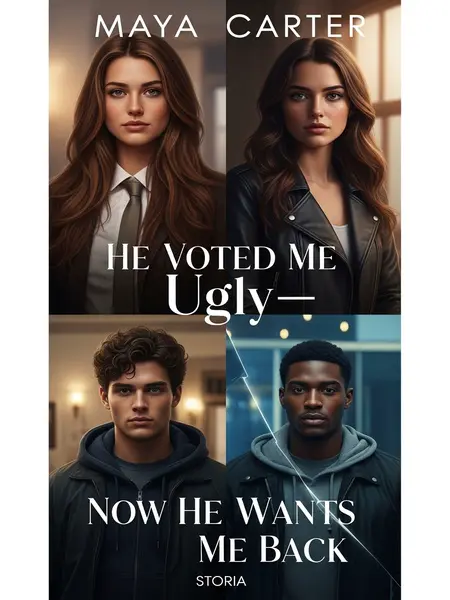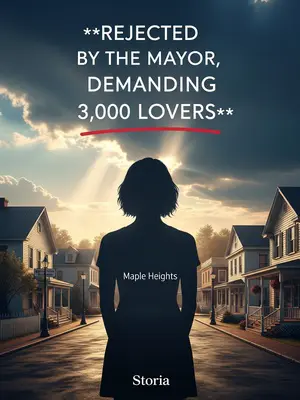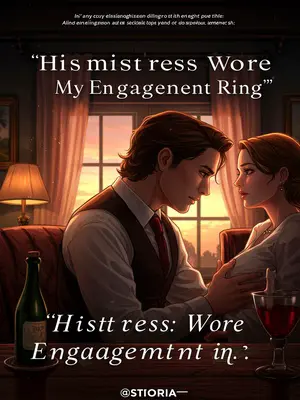Chapter 2: Apples, Confessions, and Bruises
Some things you can’t prepare for, no matter how much you try to steel yourself. I’d always thought rejection would be private—a soft no, a gentle letdown. I never expected to be on display.
Confessing was an accident.
It really was. I didn’t plan it, didn’t rehearse it in the mirror. It just… happened, the way some storms roll in without warning.
At the time, I was helping my family run our fruit stand at the corner of Maple and 3rd. Tyler walked by, I called out to him, handed him a bag of apples, and told him his mom had bought it.
The stand was small, just a few crates and a battered umbrella, but it was ours. Tyler always passed by on his way home, his backpack slung over one shoulder, looking like he belonged somewhere better.
Under the streetlight, his long lashes cast shadows as he lowered his eyes. "Maya Carter, I don't need your sympathy."
His voice was low, almost tired. The way he said my name—Maya Carter—made it sound like a question, like he was trying to figure me out.
He let go of the bag—didn't want it. I didn't catch it. Apples and pears scattered across the cracked sidewalk.
The fruit rolled everywhere, thudding against the concrete. I scrambled to pick them up, feeling my cheeks burn. Somewhere, a car horn blared in the distance, but all I could hear was the sound of fruit hitting pavement.
Just like his pride back then: as fragile as paper, torn with a single touch.
There’s a special kind of embarrassment that comes from being rejected in public, from having your kindness mistaken for pity. I wished I could disappear.
I blurted out, "Tyler, I'm not pitying you. I like you. That's why I want to be good to you."
The words tumbled out before I could stop them. I tried to sound brave, but my voice shook. I wanted him to know the truth, even if it hurt.
Then I tried to sound casual: "There are so many girls putting milk, cookies, and chocolate in your locker. One more like me won't make a difference, right?"
I tried to laugh it off, to pretend it was no big deal. But my heart was pounding so loud I was sure he could hear it.
Three seconds passed. Or maybe thirty—I couldn't tell. Finally, he spoke.
Time seemed to stretch and snap, the world narrowing to just the space between us. I watched his face, searching for any sign of kindness.
"Sorry, I don't like you."
His words were simple, unadorned. No apology, no softening. Just the truth, plain and sharp.
He turned me down flat and walked away, cool as ever.
He didn’t look back. The streetlight cast a long shadow behind him, and I felt smaller than ever.
Just as expected. Nothing to be sad about.
I told myself it was fine, that I’d known this would happen. But there’s a difference between knowing and feeling.
I laughed at myself, picked up the apples one by one, brushed off the dirt, and went back to watching the fruit stand.
I made sure to clean each apple, even though I knew no one would want the bruised ones. I kept my head down, pretending not to care, even as my hands shook.
My family lived in the last old bungalow block in Oakridge—rundown, crowded, noisy.
The houses leaned into each other, paint peeling, porches sagging. The air always smelled faintly of fried food and car exhaust. It wasn’t much, but it was home.
People there were exhausted, too busy to care about anyone else. Every face showed poverty and fatigue.
Neighbors nodded to each other in passing, but no one lingered. Everyone was hustling, trying to make ends meet. Smiles were rare, laughter even rarer.
Tyler was different. His family had suffered a sudden setback, their house in the suburbs was foreclosed, so they moved here for the time being.
He stood out, even in hand-me-down clothes. There was a kind of sadness in his eyes, a wariness that hadn’t been there before. But he still walked with his head held high.
Before, no one in class knew my mom cleaned houses for Tyler's family; he protected my dignity.
He never said a word, never let on that we had any connection outside of school. It was a small kindness, one I’ll never forget.
Now, I confessed without knowing my place—also to protect his dignity.
I wanted to be honest, to give him a way out that wouldn’t embarrass either of us. But honesty can be a double-edged sword.
Otherwise, I never would have spoken my feelings out loud.













